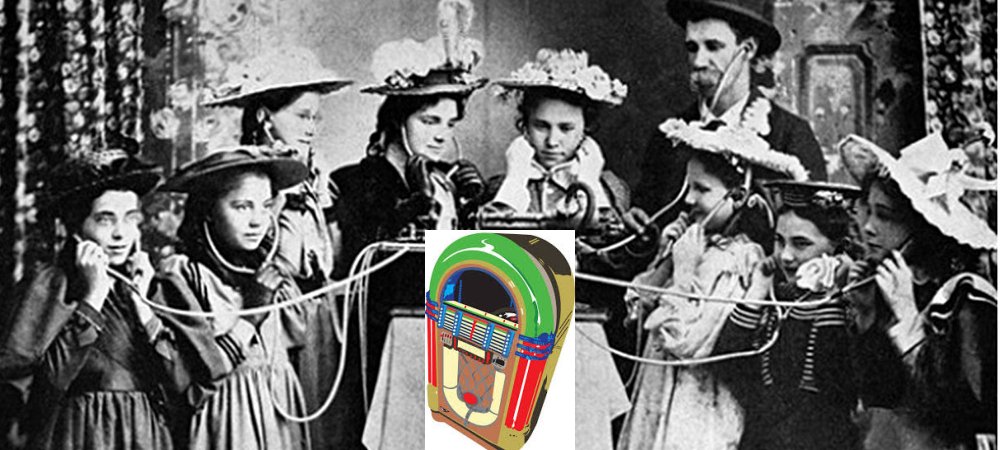MessageToEagle.com – On November 23, 1889, the first jukebox was installed at the Palais Royale Saloon in San Francisco. It becomes a true overnight sensation, and its popularity spreads around the world.
This Edison cylinder phonograph had oak cabinet and operated with a coin mechanism invented and soon patented by Glass and Arnold. This was before the time of vacuum tubes, so there was no amplification.
For a nickel a play, a patron could listen using one of four listening tubes. Known originally as “Nickel in the Slot” or “Nickel in the Slot Payer”, cylinder phonograph with an electric motor was powered by a storage battery, and connected four “listening tubes”.
The device was so successful that soon Glass could set up of dozen more jukebox machines in other locations.
It was an instant success, earning over $1000 in less than six months.
Later in the 1930s, it came to be known as the jukebox, although the origin of the word remains a bit vague. It may derive from “juke house,” a slang reference to bawdy house, where music was not unknown.
MessageToEagle.com
Expand for referencesReferences:
D.J.Cole,E. Browning, F.Schroeder, Encyclopedia of Modern Everyday Inventions








